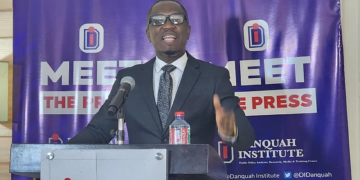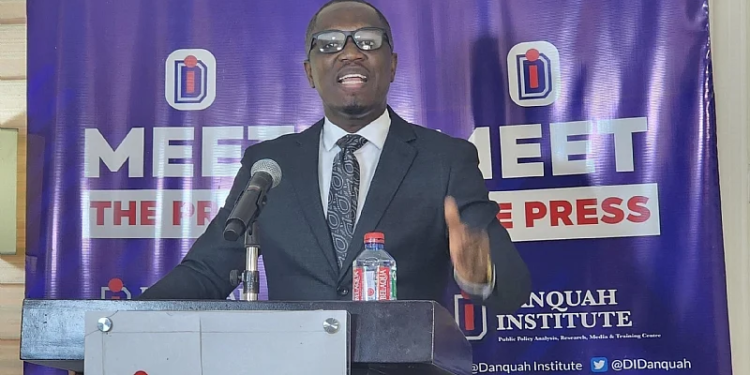Policy think tank Danquah Institute (DI) has emphasised that the New Patriotic Party’s performance in governance has always resulted in a better debt management, compared to the opposition National Democratic Congress (NDC).
In a second edition of the Institute’s planned monthly media encounter held on Wednesday April 17, 2024, dubbed “Profiling & Analysis of Ghana’s Debt from 2009 to 2023”, DI Head of Research, Dr. Frank Bannor, pointed out that, following the attainment of the HIPC completion and external debt relief, Ghana witnessed a remarkable decline in its public debt to GDP ratio, from 182% in 2000 to 32% by the end of 2008.
Using statistics and data from the Bank of Ghana and Ministry of Finance, he explained that the public debt, which was recorded at $8.07 billion in 2008, skyrocketed to $29.2 billion by 2016, indicating a more than threefold increase.
Dr. Bannor stressed that this rate of change indicates that on average, the NDC government added 32.75% debt to Ghana’s debt stock every year between 2009 to 2016.
He stated that this astronomical increase in the debt stock represents one of the worst management of the public debt in recent times. According to him, the public debt, which stood at $29.2 billion in 2016, had increased to $51.04 billion as at the end of 2023.
He maintained that contrary to public perception, this marks a little over one and half increase in the overall public debt stock under the NPP.
Dr. Bannor said the chosen topic had become necessary because, within local commentary, contrasting viewpoints had emerged to explain the country’s debt situation.
He noted that while one perspective attributes Ghana’s mounting debt to factors such as corruption, incompetence and mismanagement, casting blame on COVID-19, Russian-Ukraine War, and excess energy capacity payments, another faction had directed criticism towards current government and alleging that Government had resorted to borrowing to fulfil populist campaign promises.

































